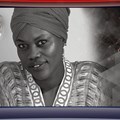In another of our exclusive #BizTrends2023 interviews, Dali Tembo, CEO and co-founder of The Culture Foundry Co. gives insights into Gen Z in Africa as he chats to host Rutendo Nyamuda.
First and foremost Tembo says being a futurist and trend predictor has become more difficult. “In the past, you could go overseas, and you knew a flow from the haves to so-classed have-nots would occur.”
This interview is also available on YouTube, via downloadable App, Apple Podcasts, Spotify and IONO.FM.
This is no longer the case, he says. “The entire trend curve has been completely disrupted. Instead, now trends are coming from the community and township and then being reverse engineered into the first world.”
Staying abreast of this is not easy, but young people are key. “One of the ways to achieve this is to connect closely with the young people who are producing those trends and looking at the ways in which the world is changing, and how they view this world and then collaborate with them.
You used to go overseas and you knew that there would be a flow from the haves to the so-called have-nots in terms of trend influence. Well, that whole trend curve has been disrupted completely.
He points out that while there is an overwhelming amount of information on the youth out there, most is suited to the international community and not the African continent.
"There has been so much polarisation and so many assumptions around what the African Gen Z looks like, talks like, the brands they like, and the conditions they live under,” he says.
In the past two to three years, young African people have changed. "The time when we had an inferiority complex to overseas products is gone, as young Africans look for the personalisation and customisation of products.”
As a result, much of his work is about debunking myths.
“I've had interesting experiences in boardrooms with people from around the world who have very strong opinions about what African youth looks like and acts like, etc - none of which have been very accurate.”
But it is changing he says. “Global brands are giving local offices more power to dictate campaign ideas and values, and that is because of these young Africans who do not accept brands just taken from overseas and dropped into the African market.”
Connecting with young Africans
Connecting with young Africans is simple says Tembo. “Spend some time with them to understand how they feel.”
But, he warns, keep in mind that even though we refer to this as a single group, the African youth is not a monolithic group.
“There are very big differences in African youth. Not only when you talk about a country, like South Africa, but in cities within a single country, such as Jo’burg where you have to kind of look at the different nuances there.
We're in this space at the moment where many young people are looking for brands and kind of bigger multinationals to think about how we connect and redefine how we are identified.
Therefore, make sure that you personalise and customise your messages and that they are genuine and authentic. “If there is anything that young people today have the capacity to do, it’s the ability to check on your facts.”
He uses influencers as an example, saying that for a brand to be authentic the influencer they chose must use their brand or products.
“It's important to align the business objectives and values of a brand with those of those young people.”
Trends in the African youth space
Tembo says a key trend in the youth space is social health.
“Health used to be described as something that was either physical or mental. But these days, we started to see something called social health come to the fore.
“Young people feel this is a space where they can be themselves if it's around their chosen communities.”
It is akin, he says, to what some of us might call our chosen tribes, but it is not necessarily tribes as we used to see in the past. “It’s more about people whom we elect to hang around and who we know are going to back us and be there for us.”
Adding to this is overcoming a hangover from Covid, which is being hyper-localised, only speaking to a small group of people locally. “We are slowly starting to broaden that and go out again.”
This is about forming intentional and stronger connections. “Brands and brands and marketing departments, and business in general, need to make sure they take advantage of this if they want to connect with young people,” he says.
It's more about how they can be their authentic selves. “We're seeing this really manifest in the choices that young Africans are making, which leads us to another trend that I think is going become important and that we've talked about previously, and that is collaboration.”
Dali Tembo is the CEO and co-founder of The Culture Foundry Co. Follow @Dali_Tembo
In conversation with Rutendo Nyamuda. Founder Tinzwe Media. @roo10dough | www.tinzwemedia.com










































